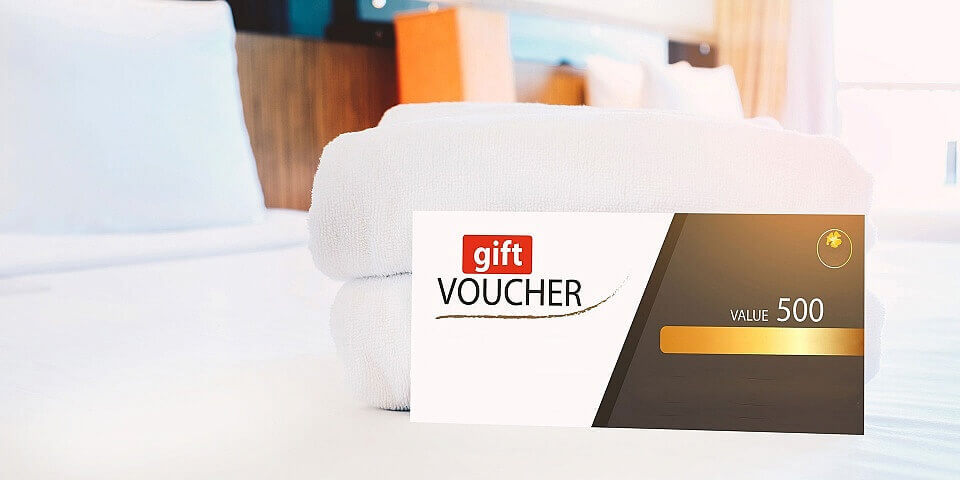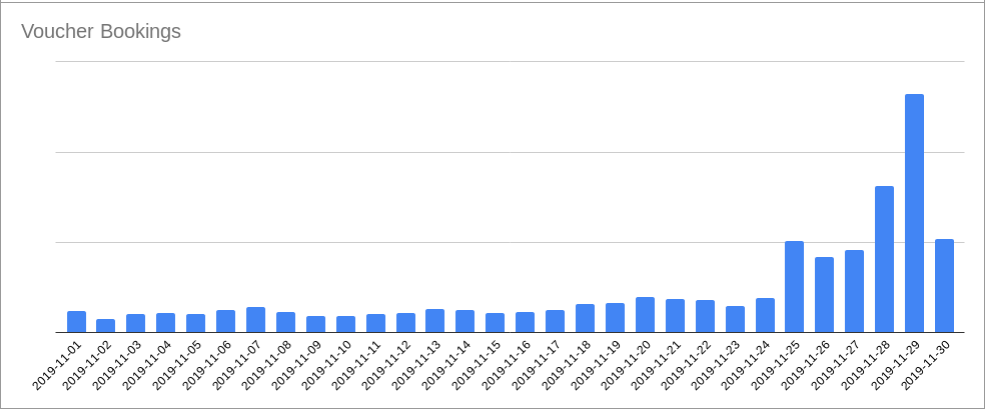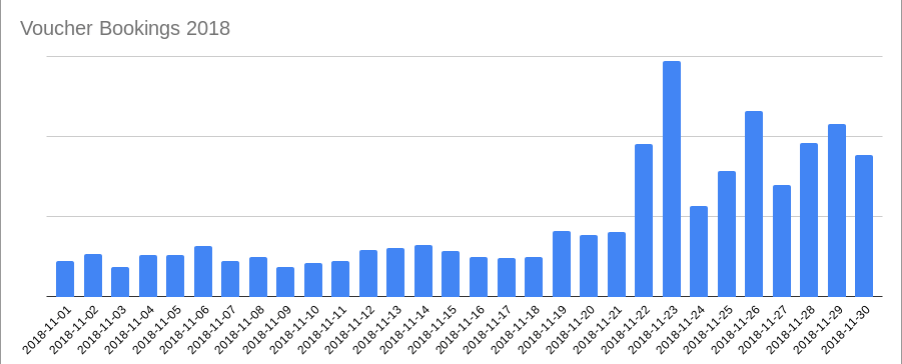
There has been a huge increase in the demand for gift vouchers across the festive period and it’s no surprise that hotel vouchers are increasing in popularity year on year.
NB: This is an article from Avvio
Experiences are quickly becoming the gift of choice for many consumers, especially where they can be personalised to create a bespoke experience for a loved one.
At Avvio, we have seen the demand for gift vouchers almost double throughout the festive period in 2019 compared to the same period in 2018. Black Friday dominated the market for Avvio customers with voucher purchases rising from the hundreds to the thousands on Black Friday alone in 2019.


While voucher sales tend to peak throughout December, we also urge our customers to leave their voucher offers switched on into January for last minute shoppers or with the offer of a discounted rate to align with the January sales.
New Legislation in Ireland
New voucher legislation came into force towards the end of 2019 for the Irish Market. The key take is that the new law will ensure all vouchers are valid for a minimum of 5 years from purchase.
Understanding the new legislation and how it affects your hotel can be tricky, so we’ve compiled our key take aways to ensure you’ve implemented the correct changes to your voucher options for 2020 (and don’t forget to update your T&C’s).
Minimum 5 year expiry date
Previously, vouchers may be valid for a specific period such as 18 months, for example, or charges may be incurred if not used within a certain time frame. Under the new Consumer Protection (Gift Vouchers) Act 2019 there is a 5-year minimum expiry date for all vouchers sold after 2 December 2019.
Vouchers can either have no expiry date or must be valid for at least 5 years from the date the gift voucher is issued. Consumers must be given details of the expiry date at the time of purchasing a voucher.
The rules do not apply to:
- The new legislation will not apply to gift vouchers bought before December 2nd 2019.
- Vouchers that can only be used to buy specified goods and services at a discounted price, from a specified trader on a specified date, or for a specified period of 3 months or less. For example, vouchers for a spa treatment or afternoon tea.
- Vouchers issued as part of a customer loyalty or promotion scheme.
- The new rules do not apply to electronic money gift cards (for example, online wallets)
You do not have to use the voucher in one go
You do not have to spend the full amount of the voucher in one transaction. The bill will override previous T&C’s which could require that the full value of a voucher be spent in one transaction. If the consumer does not redeem the full value in one go, they must be reimbursed any remaining balance if it’s more than €1, by either cash, debit/credit card or with another voucher (which will have the same expiry date as the original). The desired payment method can be chosen by the business.
More than one gift voucher can be used
The new consumer-focused law also bans contract terms that prevents consumers from using more than one gift card at a time. For example, if something costs €200 – you can now pay with two €100 gift vouchers.
A voucher is still valid regardless of the persons name on it
One final new change worth noting is that a business cannot refuse a gift voucher because it is not in the users name. This will predominantly affect airlines (who often require you to input the persons details that will be flying) as opposed to others in the hospitality industry. However, it is worth bearing in mind that businesses can no longer refuse to accept or require payment to change a name on a gift voucher if their name differs from the name on the voucher.




